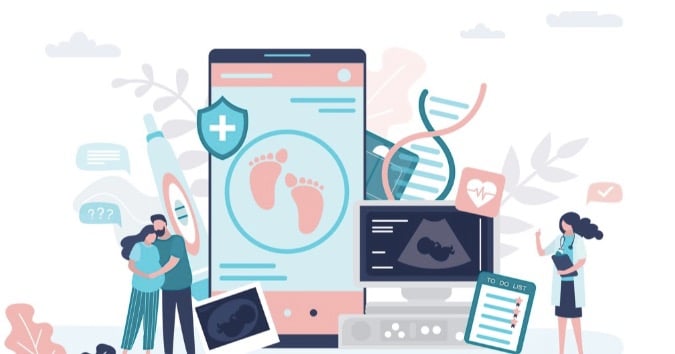
The New York Times published an article this week titled “Prenatal Care May Look Very Different After Coronavirus.” The title is spot on. Coronavirus is forcing OB-GYNs to deliver care out of the clinic and into the home, and in the course of the transition providers have discovered a value in virtual care that extends far beyond the needs of a pandemic world.
But while coronavirus may very well be virtual care’s accelerant to wholesale adoption, what the article fails to identify are the forward-looking innovators and doctors who have seen its potential for years, and have been implementing virtual care in their practices with great success.
Babyscripts has been rethinking prenatal and postpartum care since 2014. We started our organization on the theory that low risk pregnancies could utilize technology (a mobile app and remote monitoring devices) to reduce the number of in-person appointments, while leveraging tools to identify risk more quickly when the patient is outside of the clinic.
After two research studies, clinical adoption of our program and expansion to dozens of health systems across the country, we confirmed the efficacy of our program and the impact our tools have on improving patient satisfaction, reducing the cost and improving the quality of care.
With the loss of a patient/provider connection a primary concern for providers looking to implement virtual care, we surveyed our patients to evaluate their satisfaction rates. We found that, despite seeing their provider less in a reduced in-person prenatal schedule, moms reported high rates of satisfaction — busting the myth that less visits result in weakened connections.
In 2016, we realized that a large portion of the pregnant population was not being served by virtual care solutions. The socioeconomically at-risk — those most impacted by maternal mortality and morbidity — are prevented by current reimbursement practices from receiving access to virtual care.
Without reimbursement codes, we worked hard to find a creative way to deliver Babyscripts to vulnerable patients by way of payment through the Medicaid plan, while still providing the impact of a point-of care clinical solution. Washington DC has been ground zero for this project: AmeriHealth Caritas DC and Amerigroup, the two largest Medicaid plans in DC, now cover the cost of Babyscripts for patients who access care at the main medical centers in the District. We also have a similar structure with Medicaid plans in Pennsylvania.
It took the public health crisis of COVID-19 to move rethinking maternal healthcare into the spotlight — if only the healthcare industry had been similarly moved by the public health crisis of maternal mortality, perhaps we would be further along in the fight.

Submit a comment